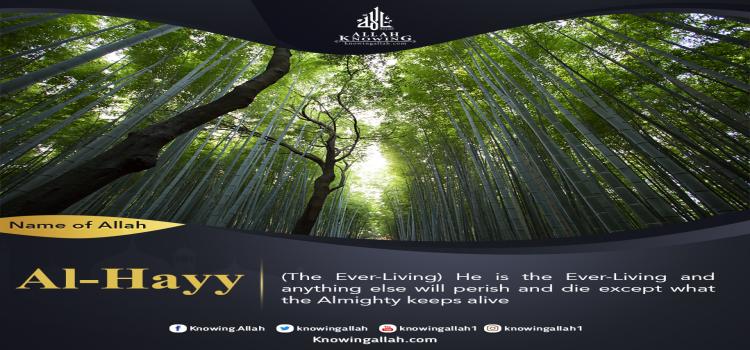The Last Five Minutes in Your Life
The Last Five Minutes in Your Life
Imagine that you are a passenger and the pilot informs you that you have five minutes before your plane will fatally crash, how would you spend your last 5 minutes?...
In October 1999, the co-pilot of Egyptian Airlines flight 990 said, in the few seconds before his plane crash killing all those on board, “I put my trust in God”. al-Batouti’s final words which he had repeated ten times was only revealed through the black box record, indeed, there are many recordings of pilots making similar statements on perceiving that death is imminent.
Imagine that you are a passenger and the pilot informs you that you have five minutes before your plane will fatally crash, how would you spend your last 5 minutes? Surely, you would recall your sins and shortcomings, be profoundly regretful, and in a deep state of grief ponder over the sins you have committed, the ways in which you oppressed others, the time you wasted in your life, and the many opportunities now lost.
At that moment you would wish that those five minutes somehow be extended to fifty, just a small amount of time enough to repent (in some meagre way) and seek divine forgiveness, whilst repetitively articulating short formulas pertaining to God (adhkar) in the hope to balance one’s vast sins with some good.
However, the irony of such an example is that no one knows whether they shall be alive in in the next five minutes. Thus, the wise person makes use of every single moment assuming it to be his last. What can be done is not limited to only dhikr or ritual prayer (salah), but it encompasses anything you do to please your lord be it social, political or even economic activities.
However, it is the wisdom of Allah to choose certain times where he likes to see his servants increase in particular acts of worship and hence they attain rewards equal to one who lives a number of lives. For example, worshiping Allah during the Laylatul-Qadr (Night of power) is approximately equivalent to 83 years of consistent worship. If a person were to observe a consistent worship during the whole month of Ramadan for 10 years, it would mean that s/he has amassed more than 830 years worth of righteous deeds.
Of such opportunities to amass eternal wealth, Allah has bestowed upon us the first ten days of Dhu al-Hijjah. Abū ‘Uthman al-Nahdῑ said about the early generation that they would worship incessantly in the last ten days of Ramadan, the first ten days of the Dhu al-Hijjah and the first ten days of Muharram. The Prophet (peace and blessings of Allah be upon him) said:
“There are no days in which righteous deeds are more beloved to Allah than these ten days.” The people asked, “Not even jihad for the sake of Allah?” He said, “Not even jihad for the sake of Allah, except in the case of a man who went out to fight giving himself and his wealth up for the cause, and came back with nothing.” [Reported in Sahih al-Bukhari by ibn Abbas, 2/457].
«ما العمل في أيام العشر أفضل من العمل في هذه. قالوا: ولا الجهاد؟ قال: ولا الجهاد، إلا رجل خرج يخاطر بنفسه وماله، فلم يرجع بشيء» رواه البخاري
He also said:
“There are no days greater in the sight of Allah and in which righteous deeds are more beloved to Him than these ten days, so do plenty of of tahleel (saying ‘La ilaah illa Allah’), takbeer (saying ‘Allahu Akbar’) and tahmeed (saying ‘al-hamdulillah’).” [Reported by Ahmad, 7/224; Ahmad Shaakir stated that it’s chain of narrators is authentic].
«ما من أيام أعظم عند الله ولا أحب إليه من العمل فيهن من هذه الأيام العشر فأكثروا فيهن من التهليل والتكبير والتحميد» رواه الإمام أحمد وقال أحمد شاكر: إسناده صحيح
This means that one unit of prayer during these days is far better than prayers on other days, a pound given in charity is far better than thousands of pounds, and saying one takbir is better than those said on other days. Indeed, the opportunity is unique – one that may never come again.
There are various types of worship that may be performed during these ten days. Examples include fasting, recitation of Qur’an, performing the adhkar, and sacrificing an animal. Sacrificing, also known as Qurbani, is a unique act of worship that is practiced in the month of Dhu al-Hijjah.
www.islamstory.com
Source: https://en.islamway.net



